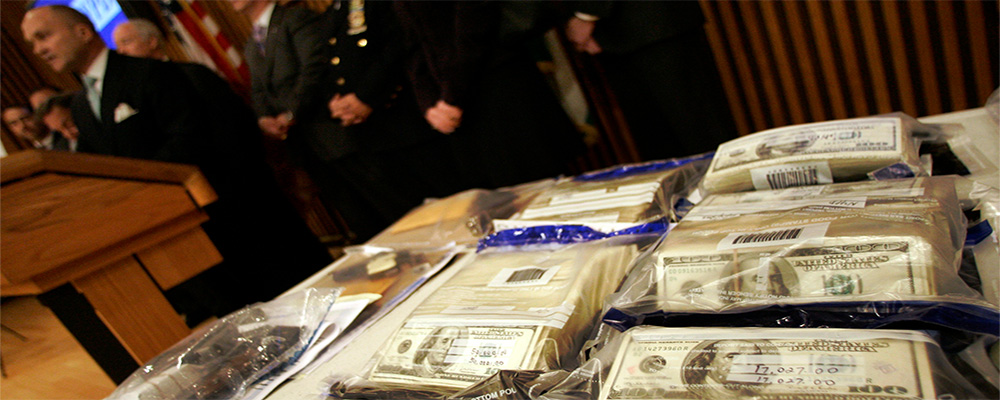As long as you obey the law, the law should respect your liberty and property. Well, that’s what common sense would have you believe. In America today, this is not the case. Every year, law enforcement agencies take billions in cash and assets from citizens who haven’t been convicted of a crime.
This is possible because of the civil asset forfeiture law.
Forfeiture was started in the 1980s to assist law enforcement’s efforts in the “War on Drugs.” Since 1986, revenue realized from forfeiture by the Department of Justice (DOJ) has grown by 4,700%. In 2014 alone, the DOJ took in $4.5 billion. That’s not counting revenue from the states.
Unlike criminal forfeiture, civil forfeiture allows law enforcement to take property from citizens who have neither been charged nor convicted of a crime. Due to a lower standard of proof, 87% of forfeitures are now civil.
To understand this threat, let’s look at how it works.
Guilty Until Proven Innocent
To seize your property under civil forfeiture, law enforcement needs only probable cause that your property was somehow involved in illegal activity. Millions of dollars in cash and assets have been taken from citizens without arrest for even minor reasons.
Unlike criminal forfeiture, in civil forfeiture, the burden of proof is on the owner—not the government. In reality, this law carries the presumption of guilt until proven innocent. However, forfeiture laws are stacked against owners, and most cases never go to court.
Civil forfeiture rests on the idea that the property itself, not the owner, has violated the law. As a result, when forfeiture cases go to court, they have strange titles like United States v. One Pearl Necklace.
As the accused is an item of property, not a person, the property owner has no right to legal counsel and becomes a third-party claimant. If the owner cannot afford the legal costs to plead their property is innocent, too bad. However, the plot thickens when we look at how the law is applied.
In Philadelphia, half of civil forfeitures were for less than $200. It’s a similar story in other states. This is a far-cry from the law’s intended purpose of tackling wealthy criminals. As above, low forfeiture amounts and high legal costs means that 88% of cases don't go to court.
For cases of $20,000 or more, many people are forced to settle out of court due to high legal costs.
While the law itself is open to abuse, it gets worse when we track where the money goes.
Conflict of Interest
Civil forfeiture is an easy way for law enforcement to seize assets. It also showers them with financial perks.
Half of US states share up to 100% of forfeited assets with the local agencies who seize them. A 2015 report by the Washington Post found that 500 local departments and task forces got 20% or more of their annual budgets from civil forfeiture gains.
At the state level, revenues are up by 136% in the past few years. From 2001–2014, the DOJ and Treasury together took in $29 billion from civil forfeitures.
These perverse incentives are magnified by a program called equitable sharing. It allows States with tight forfeiture laws to bypass them by using federal seizure laws. The local agencies reward their federal friends with a share of the spoils.
Between 2000–2013, the DOJ paid local agencies $4.7 billion under the equitable sharing program. 25% of these funds were used to pay salaries, with over 55% going toward “other” unnamed items.
While state and local agencies can physically seize your property, federal agencies have far greater reach.
Flash-Freeze
Under the umbrella of civil forfeiture, the IRS has frozen the accounts of many small business owners and their families.
From 2005–2012, the IRS seized $242 million from “structuring” violations. Bank deposits of $10,000 or more must be reported. If a person makes several deposits below that amount with the intent to avoid reporting, that is structuring.
Rather than review a case of suspected structuring, the IRS uses a “freeze first, ask later” policy. There have been several cases where the IRS seizes the bank account of a business without warning. This leaves the business unable to pay staff and suppliers.
Many businesses have valid, decades-long patterns of multiple deposits under $10,000. Yet, more than 100 multi-agency task forces now trawl through bank reports for signs of “suspicious activity.” In 2014 alone, banks filed more than 700,000 suspicious activity reports to comply with the Bank Secrecy Act.
Today, the IRS can freeze or seize a bank account if it finds what they deem “suspicious patterns.” Randy Sowers is one such victim of civil forfeiture abuse. After the IRS seized his accounts, he said, “[they said] they could throw my wife in jail for depositing cash in a bank. It was just unbelievable.”
The machine that is civil forfeiture seems to destroy everything in its path. Recently, though, there has been cause for optimism.
Civil Reformation
Civil forfeiture abuse has been in the spotlight recently due to reports from the Washington Post and the Institute for Justice (IJ). As a result, many states have passed laws which restrict the use of civil forfeiture.
Following the Washington Post’s report on forfeiture abuse, the then attorney general Eric Holder passed legislation to curb the use of equitable sharing.
Many states have since eliminated direct financial incentives for law enforcement under civil forfeiture. They have also raised the burden of proof from probable cause, to beyond reasonable doubt.
The rise of groups like IJ have also been positive. It has helped many forfeiture abuse victims recover their assets by filing lawsuits against the abusing agencies.
Although there is cause for greater optimism, civil forfeiture is still a huge threat to every American. That private property can be randomly seized without due process remains an alarming reality in the USA.
Until next time…
Stephen McBride
Chief Analyst, RiskHedge




